Edited Volume
An edited volume published by an academic publisher will collect the research papers that underpin this project. Draft versions of some of the chapters are posted here to enrich the discussion at the conference.
Please note that the versions posted here are preliminary draft versions. They will serve as a basis for discussion during the conference, but they are not to be quoted in any form. The views expressed in these documents are solely those of the authors and do not necessarily represent the official views of the European Commission.
Documents
Source: ec.europa.eu
Faces of Convergence
The Faces of Convergence is an open-access e-book put together as part of the Convergence in the Baltics, Central-Eastern and South Eastern Europe: 15 Years of EU Enlargement project. It is a collection of personal views on the impact of EU membership on the nature and speed of convergence. Contributors are people who made important contributions to the convergence process in the region working in government, private business, academia and civil society. There are also contributors who worked in international organizations, or in international academia or business, and helped and analyzed the convergence process in the region. They share with us their personal views based also on their own experience. To enrich the discussion at the conference, you can read preliminary versions of their contributions here. The e-book will be published later this year. The views expressed in this document are solely those of the author and do not necessarily represent the official views of the European Commission.
László Andor
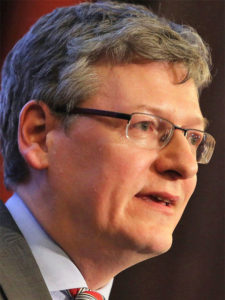
László Andor
László Andor is Head of Department of Economic Policy at Corvinus University (Budapest) and Senior Fellow at FEPS (Brussels). He was EU Commissioner for Employment, Social Affairs and Inclusion in the Barroso II Commission (2010-14). Beforehand, he was a Member of the Board of Directors of the EBRD (London). Since 2015, he has been lecturing at Hertie School of Governance (Berlin), ULB (Brussels) and Sciences Po (Paris) and became member in various think tanks (IZA, EPC, RAND Europe, Friends of Euorpe). He was awarded Doctor Honoris Causa at Sofia University of National and World Economy and the Legion of Honour by the French President in 2014.
Twitter: @LaszloAndorEU
Erik Berglof
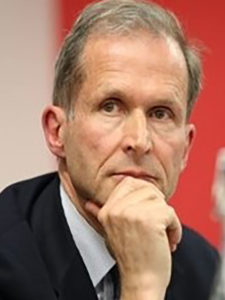
Erik Berglof
Professor Erik Berglof is the inaugural Director of the Institute of Global Affairs (IGA) and its newly launched Global Policy Lab at the London School of Economics and Political Science (LSE). He has published widely in top journals on economic and political transition, corporate governance, financial development and EU reform. He was a member of the Secretariat for the G20 Eminent Persons Group on Global Financial Governance. Prior to joining the LSE, Professor Berglof was the Chief Economist and Special Adviser to the President of the European Bank for Reconstruction and Development (EBRD) and Director of the Stockholm Institute of Transition Economics (SITE) and Professor at the Stockholm School of Economics. He is also a Non-Resident Fellow at the Brookings Institution, a Research Fellow of the Centre for Economic Policy Research (CEPR) and Senior Fellow of the European Council for Foreign Affairs (ECFR). In 2013 he was awarded the Leontief Medal (2013) for his contributions to economic reform.
Dimitar Bogov
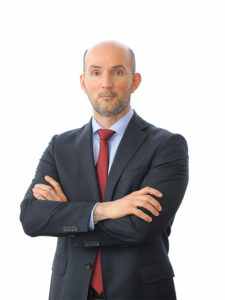
Dimitar Bogov
Dimitar Bogov is currently the EBRD’s Regional Lead Economist for Eastern Europe and Caucasus. He is an economist with more than 20 years of experience on senior management positions in the government sector, business consultancy, commercial banking and central banking. He was the Governor of National Bank of the Republic Macedonia in 2011-2018. As a Governor he led the Central Bank between 2011-2018 in challenging environment of global non-standard monetary policies, confidence crisis in the Eurozone, Greek debt crisis and domestic political uncertainty. Before that he served four years as vice-governor. Between 2002-2007 he was Chief Economist of the largest foreign owned bank in Macedonia. He also held managerial positions in the Ministry of Finance and State statistical office. In his professional career, he gained experience in macroeconomic management, monetary policy implementation, banking regulation and supervision, foreign reserves management, risk management, finance and statistics.
Willem Buiter
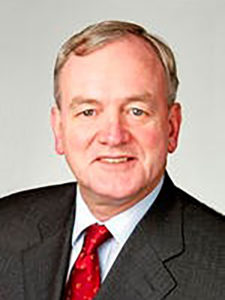
Willem Buiter
Willem Buiter is a Special Economic Adviser at Citi. Before joining Citi as Global Chief Economist in 2010, a position he held until 2018, he was Professor of Political Economy at the LSE and an adviser to Goldman Sachs. He was Chief Economist for the EBRD, and a founder External Member of the Monetary Policy Committee of the Bank of England. Willem has published on economic affairs in books, professional journals and the press, and has held academic positions at Princeton University, Bristol University, the LSE, Yale University and Cambridge University. He holds a BA in economics from Cambridge University and a PhD in economics from Yale University. He has been a member of the British Academy since 1998 and was awarded the CBE for services to economics in 2000. He is an Adjunct Professor of Economics at Columbia University and an Adjunct Senior Fellow at the Council on Foreign Relations.
Agnieszka Chłoń-Domińczak
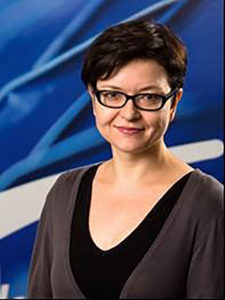
Agnieszka Chłoń-Domińczak
Professor Agnieszka Chłoń-Domińczak is a head of the Institute of Statistics and Demography at the Warsaw School of Economics. She is also a country team leader for the SHARE project in Poland. Between 2009 and 2017 she was the project leader for National Qualifications Framework Development and the team working on Education and Labour Market and the Educational Research Institute in Warsaw. She is member of the Network of independent experts on education and the European Social Policy Network, and between 2010 and 2017 she was a member of the European Qualifications Framework Advisory Group.
Twice a Deputy Minister of Labour and Social Policy as well as former Director of the Department of Economic Analyses and Forecasting in the same Ministry with responsibilities covering, among others the oversight of the social insurance system. She was the vice president of Social Protection Committee of the European Council and chair of the Working Party on Social Policy of Employment, Labour and Social Affairs Committee of the OECD. A member of the pension reform team in Poland that prepared the changes implemented in 1999. As a consultant, she participated in numerous activities related to pension reforms in the region of Central and Eastern Europe, cooperating with the World Bank, ILO and the OECD. An author and co-author of many publications in the field of pensions and labour markets. Her research interests include demography, pension systems, labour markets, social policy, health and education.
Rumen Dobrinsky
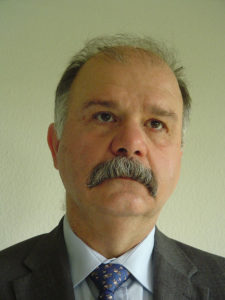
Rumen Dobrinsky
Dr. Rumen Dobrinsky is a Senior Research Associate of the Vienna Institute for International Economic Studies, Director of Strategy of the European Alliance for Innovation and a senior consultant at the United Nation Economic Commission for Europe (UNECE). He spent a large part of his professional career at the UNECE where he was a Director for Economic Cooperation and Integration. Previously, he was also the President of the Centre for Economic and Strategic Research in Sofia. He acted as a consultant to several international organizations, participated in numerous international research projects and served on the editorial board of Economic Systems. His main areas of interest include European integration, economic transformation, knowledge-based development and competitiveness. He is the author of four books and numerous scientific journal articles.
Sergei Guriev
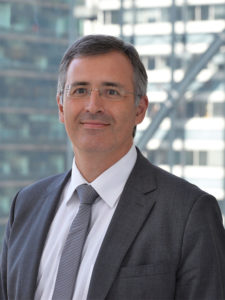
Sergei Guriev
Sergei Guriev is the Chief Economist of the European Bank for Reconstruction and Development (EBRD). He joined EBRD in 2016 after running the New Economic School in Moscow in 2004-13 and serving as a tenured professor of economics at Sciences Po, Paris in 2013-16. As the EBRD’s Chief Economist, Sergei Guriev is responsible for advising the President and other senior members of the Bank’s management team on economic issues of strategic or operational relevance pertaining to the EBRD region. Dr. Guriev’s research interests include political economics, labor mobility, corporate governance and contract theory. Dr. Guriev has published in major international refereed journals. He has been a board member of Sberbank, E.ON Russia, Alfa-Strakhovanie Insurance Company, Russia Venture Company, Russian Home Mortgage Lending Agency, Russian Agricultural Bank, and the Dynasty Foundation. In 2006, he was selected a Young Global Leader by the World Economic Forum. In 2009-11, he was included in the top 100 of the President of Russia’s Cadre Reserve. In 2016-17 he has served as the President of the Society for Institutional and Organizational Economics. He is also a member of the Executive Committee of the International Economic Association and a Research Fellow at the Centre for Economic Policy Research, London.
Irena Elżbieta Kotowska
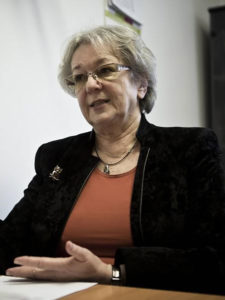
Irena Elżbieta Kotowska
Irena Elżbieta Kotowska is a Professor of Demography at the Institute of Statistics and Demography, Warsaw School of Economics. She is the Chair of the Committee on Demographic Studies, Polish Academy of Sciences, member of the Scientific Council on Statistics of the Central Statistical Office and the Government Population Council. Her main fields of publications include population and economy; fertility, family, gender and the labour market; population ageing; demographic projections; population-related policy, social policy.
She served as a national expert for the Council of Europe, OECD and the European Commission. In the 2008-2012 she was a representative of Poland to the FP7 Social Sciences and Humanities Programme Committee. She was a member of the Expert Group on Social Investment for Growth and Cohesion (2012-2013) and the Horizon 2020 Advisory Group for European Research Infrastructure (2017-2018), European Commission. Currently, she is working as an expert for the Population Europe (since 2010). She is the country-level coordinator of the Generations and Gender Programme (GGP), the international research programme on causes and consequences of family dynamics, gender and intergenerational relationships, and a member of the GGP Consortium Board.
David Lubin
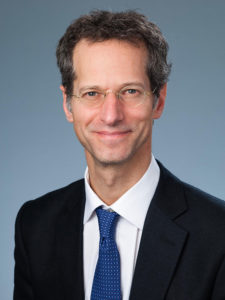
David Lubin
David Lubin is Managing Director and Head of Emerging Markets Economics at Citi, responsible for a team of 30 economists in 15 different locations globally. In the early part of David’s career, he was a member of the team that represented Midland Bank in Brady-era sovereign debt restructuring negotiations. He has over 25 years’ experience as an economist looking at emerging markets, and joined Citi in 2006, having spent many years at HSBC. He was educated at Oxford University, and is an Associate Fellow at Chatham House, the Royal Institute of International Affairs. His book, ‘Dance of the Trillions: Developing Countries and Global Finance’ (Brookings Press) was listed in the Financial Times as one of the best economics books of 2018.
Katarína Mathernová
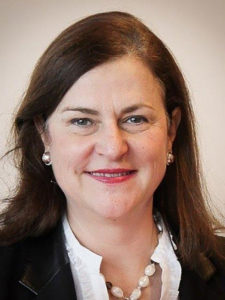
Katarína Mathernová
In September 2015, Katarína Mathernová assumed her function as Deputy Director General in the European Commission, in the Directorate General for Neighbourhood & Enlargement Negotiations. She has previously served as Deputy Director General in DG Regional Policy between 2007-2010. Ms Mathernová held senior management and advisory posts at the World Bank (2002-2004 and 2010-2014), and in the reform government in Slovakia (1998-2002) where she was Chief Institutional and Policy Advisor to the Deputy Prime Minister for Economic Affairs, a key architect of the Slovak economy’s transformation. Ms. Mathernová is active also academically, as. Professor of Practice at Vesalius College in Brussels. She frequently gives guest lectures at other universities in Europe and the United States. Ms. Mathernová holds a Juris Doctor degree from Comenius University in Bratislava, a Masters of Law degree from the University of Michigan, is a member of the New York Bar, and speaks six languages. She started her career in private practice of law in the US, with distinguished New York and Washington DC Law Firms and later as a private sector development and rule of law specialist at the World Bank in Washington. Her distinctions include the award Slovak Woman of the Year in 2000 and the Pro Bono Human Rights award in 1993 from the International Human Rights Law Group. She is the author of publications on Slovak and Czech economic and constitutional affairs, on reformology and, lately, on Ukraine.
Ivan Mikloš
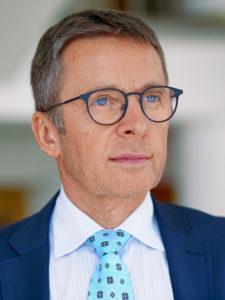
Ivan Mikloš
Ivan Mikloš is former Deputy Prime Minister and Minister of Finance of the Slovak Republic (2002-2006, 2010-2012), Deputy Prime Minister for Economy (1998-2002), and Minister of Privatization (1991-1992). He has co-founded and led the economic think tank MESA10 (1992-1998). Between 2006-2010 and 2012-2016, he was a Member of Parliament. In 2014, he was reappointed as the President of MESA10 and became a Member of the International Advisory Board of the National Reform Council of Ukraine and the platform VoxUkraine. Until April 2016, he served as a Chief Advisor to the Minister of Finance of Ukraine, and as an Advisor to the Minister of Economic Development and Trade of Ukraine. Since April 2016, he has been serving as a Chief Economic Advisor to the Prime Minister of Ukraine. He is also Chairman of the Strategic Advisory Group for Supporting Ukrainian Reforms and Co-Founder of the Ukrainian economic think tank Centre for Economic Strategy.
Ivan Mikloš was one of the leading figures of economic transformation in Slovakia. He significantly contributed to the entry of the Slovak Republic into the OECD, and instigated an extensive and effective tax reform. He led the government agenda on economic restructuring and fiscal consolidation. The second Dzurinda´s government (2002-2006) gained a very reformist reputation thanks to severe austerity measures and a comprehensive program of structural reforms (tax, social sector, pension, healthcare, public finance, labour market) backed by Ivan Mikloš. Thanks to these reforms, Slovakia was able to join the Eurozone in 2009. In 2004, he was awarded Best Minister of Finance of the Year by Euromoney, and Top Business Reformer by the World Bank´s Doing Business report. Ivan Mikloš is the author of ‘Book of Reforms’ (2005), ‘Rewriting the Rule’ (2001) and dozens of studies and articles in the expert and popular press.
Dušan Mramor

Dušan Mramor
Dr. Dušan Mramor is a Professor of Finance at University of Ljubljana. He served as Minister of Finance twice. In 2016, he was awarded the title of European Minister of Finance of the Year by The Banker. Previously, he was a member of the Council of the National Bank and the Chairman of the Securities Market Agency of Slovenia. He was a member of the negotiation team for the Association Agreement of Slovenia with the EU. His research is in the broader field of finance and governance. He has published extensively in these areas, including three books and more than 30 larger research studies. He was vice president of the European Finance Association. Currently he serves on the editorial board of Economic and Business Review. He was the Dean of the Faculty of Economics and the Chairman of the Board of University of Ljubljana.
Marcin Piatkowski
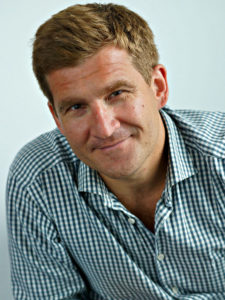
Marcin Piatkowski
Prof. Marcin Piatkowski is a Senior Economist in the World Bank office in Beijing and Associate Professor at Kozminski University in Warsaw. Previously he was a Visiting scholar at Harvard University’s Center for European Studies, Chief Economist of PKO BP, the largest bank in Poland, economist in the European Department of the IMF and Advisor to IMF’s Executive Director. He also served as Advisor to Poland’s Deputy Premier and Minister of Finance. He holds a Ph.D. and habilitation in Economics from Kozminski University and an M.A. in Finance and Banking summa cum laude from the Warsaw School of Economics. He is the author of “Europe’s Growth Champion: Insights from the Economic Rise of Poland”, Oxford University Press 2018, which has been selected as one of “Top 12 Best New Economic Development Books to Read in 2019”.
He tweets @mmpiatkowski
Alexander Plekhanov
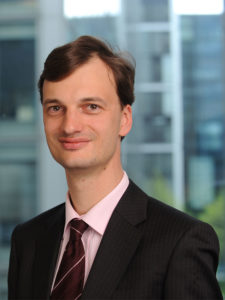
Alexander Plekhanov
Alexander Plekhanov is Director, Transition Impact and Global Economics, at the European Bank for Reconstruction and Development in London. His main responsibilities include editorship of the Transition Report and the Regional Economic Prospects as well as analysis of trade policy and development impact of EBRD projects. Previously Alexander covered economic developments in a number of countries in the region, including Russia, Belarus, Mongolia and Central Asia. Alexander joined the Bank in October 2007.
Prior to that, he worked as an economist at the International Monetary Fund in Washington, DC. Alexander holds a Ph.D. in Economics from the University of Cambridge.
Marko Škreb
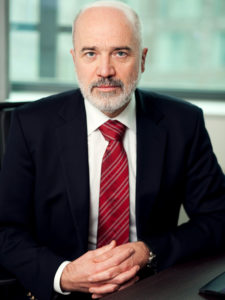
Marko Škreb
Marko Škreb started his career teaching at the University of Zagreb, Faculty of Economics. He worked at the Croatian Central Bank (HNB), first as Research and Statistics Director and then as Governor from 1996 to 2000. In 1997, he was awarded the Central European Annual Awards for Excellence – Best Central Bank Governor. Since 2000, he has worked as a central banking consultant in numerous countries, mostly for the International Monetary Fund. His most recent assignments have been resident advisor in IMF RTAC in Accra, Ghana, in the National Bank of Ukraine, and in the Central Bank of Bosnia and Herzegovina (for USAID). He frequently participates at international conferences and he published numerous articles and edited books, mostly on issues related to economic transition.
Iliyana Tsanova
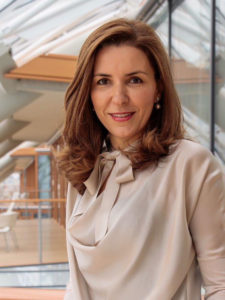
Iliyana Tsanova
Ms. Iliyana Tsanova is Deputy Managing Director of the European Fund for Strategic Investments (EFSI) – a EUR 33 billion guarantee facility, launched jointly by the European Commission and the European Investment Bank Group to stimulate investments in the EU. Prior to joining EFSI, she had over 12 years of development banking experience with the European Bank for Reconstruction and Development in London. Ms. Tsanova held a number of non-executive board positions with infrastructure funds and utility companies. In 2013 and 2014, Ms. Tsanova was appointed Deputy Prime Minister in two caretaker governments of Bulgaria. In 2015, she was named Young Global Leader by the World Economic Forum. Her academic background is in Corporate and Business Finance. She holds a MSc. in Finance from University for National and World Economy in Sofia, and pursued postgraduate studies in Financial Management as visiting scholar at Georgetown University in Washington D.C.
Zdeněk Tůma
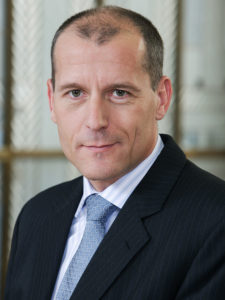
Zdeněk Tůma
Zdeněk Tůma (1960) graduated from University of Economics, Prague, later on he finished his postgraduate studies at the Czechoslovak Academy of Sciencies. At the beginning of the 1990s, he participated in the reintroduction of economics education at the Charles University where he was appointed an associate professor. He continues lecturing at Charles University until today; in his academic career, he focuses on central banking and financial regulation. He worked as the chief economist in Patria Finance, an investment bank. In 1998 he moved to the European Bank for Reconstruction and Development where he became a member of the Executive Board. In February 1999, Zdenek was appointed the vice-governor of the Czech National Bank, and in December 2000 the governor; he held this position till 2010. He has been a partner in KPMG Czech Republic since then, focusing on consulting in the financial sector. He is a member in several scientific and statutory boards at various universities. He is a member of the Czech Economic Society, of which he was the president in 1999-2001.
András Vértes
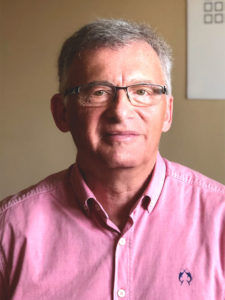
András Vértes
András Vértes is a high-level expert in macroeconomic. From 1998 he is the Chairman of the Board of GKI Economic Research, the most well-known Hungarian economic Think Tank. In 2009 he was nominated to be Prime Minister of Hungary. In the past 20 years Andras was adviser to the Prime Minister or Minister of Finance in Hungary, member of the State Reform Committee. He worked for the European Commission or the European Parliament, author of many books, articles and studies. Member of Board of Directors at a few companies. He was awarded with the Officer’s Cross of the Order of Merit of the Republic of Hungary.
Lúcio Vinhas de Souza
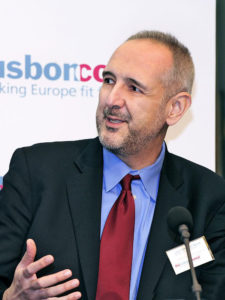
Lúcio Vinhas de Souza
Lúcio Vinhas de Souza is the head of the Economics Team at the European Policy Strategy Center (EPSC), the internal think tank of the President of the European Commission in Brussels. He was until March 2015 the Chief Economist of Moody’s Investor Services in New York. Before that position, he coordinated the analysis and forecasting for the HIC (High Income Countries) and ECA (Europe and Central Asia) regions at the World Bank’s “Development Prospects Group”, where he co-authored the “Global Economic Prospects” publication. Prior to the World Bank, Dr. Vinhas de Souza was responsible for Russia and Belarus at the Directorate General for Economic and Financial Affairs (DG ECFIN) at the European Commission in Belgium, and before that he was a Coordinator of Research Area at the Kiel Institute for World Economics in Germany. Going further back, his first work experience was as an international economist was at the United Nations’ Secretariat.
Dr. Vinhas de Souza has also been a visiting researcher and visiting fellow at a number of institutions, including the Deutsche Bundesbank, the European Centre for Advanced Research in Economics and Statistics in Belgium and the Central Bank of Estonia. He is widely published in noteworthy economic journals in different languages and has organized and participated in numerous international meetings, seminars and workshops.
Dr. Vinhas de Souza, a Portuguese citizen, holds a Ph.D. in Economics from the Erasmus University Rotterdam in the Netherlands, and Master and Bachelor degrees in Economics from the NovaSBE University in Lisbon, Portugal.
Marko Voljč
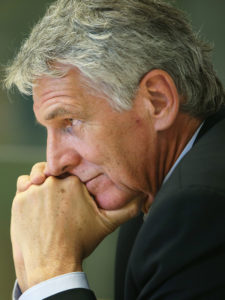
Marko Voljč
Marko Voljč started his career in the National Bank of Slovenia, which was then part of the National Bank of Yugoslavia system. In 1979, he joined the World Bank, serving,as the first Head of Resident Mission in Mexico and the Head of Central America and Panama Division. In 1992, he became the CEO of Nova Ljubljanska Banka (NLB), the largest bank of Slovenia, where he successfully carried out the rehabilitation and partial privatisation of the bank. In 2004, he joined the KBC Group in Brussels, serving as the CEO of K&H, the second largest bank in Hungary, and as the Group ExCo member responsible for Russia, Central and Southeastern Europe, before retiring in 2015. He is currently a financial advisor to various international groups. He is also active in the NGO field in the SEE region.
Source: ec.europa.eu



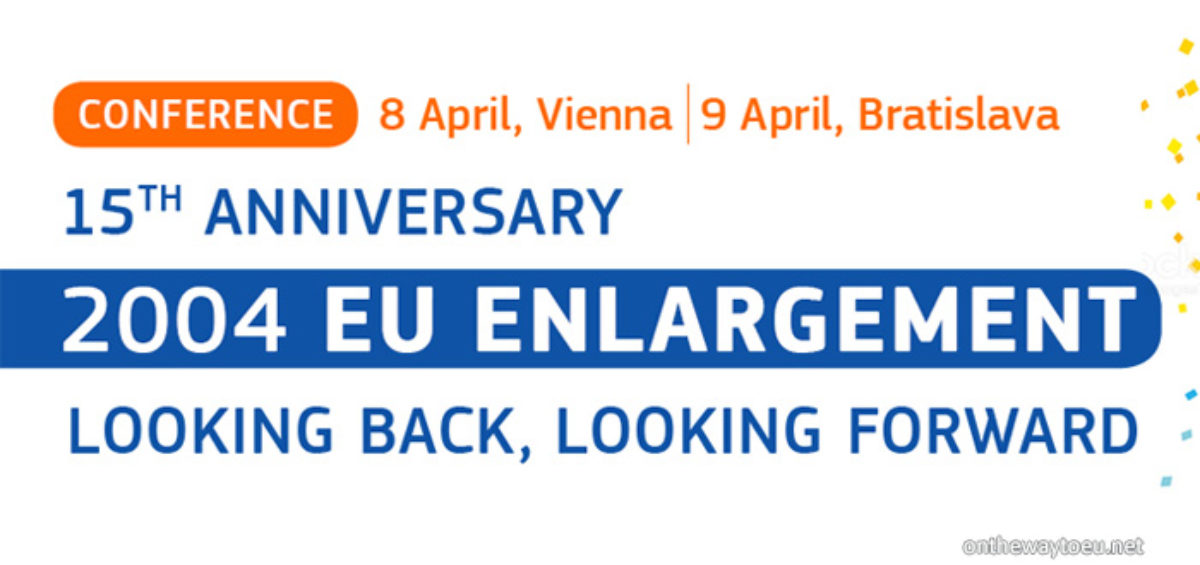
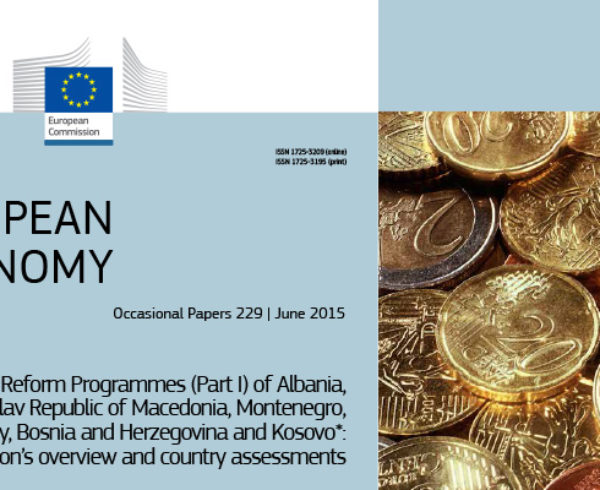



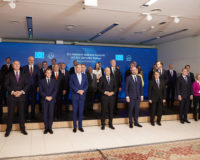



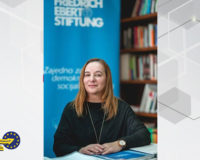



Leave a Comment